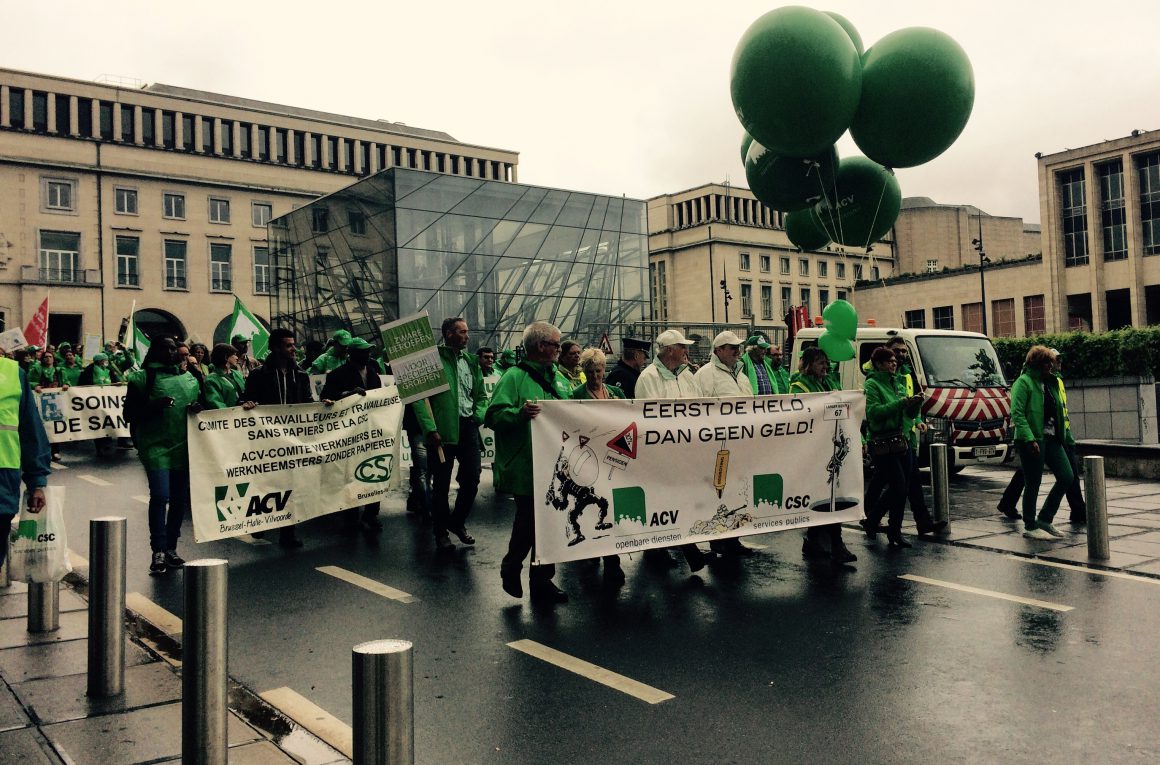One week after French oil workers went on strike which has paralysed 6 of France’s 8 refineries, half of all rail transportation in France has come to a screeching halt due to a transportation strike. But French oil workers and transport activists are protesting different issues. The ongoing oil standoff is in protest against President Hollande’s labour bill, which makes it easier to hire and fire workers, and comes at a time when the rail unions have decided to take a stand as well. While gasoline suppliers are crippling oil production in the country to protest against labour reform, rail workers fear the loss of many bargaining advantages due to the reform of the national collective arrangement RH077, outlining working patterns and practices in state transport. This has spurred public sector protests in Belgium as well.
The document RH077 defines the working arrangement for railway workers including the 35 hour work week, personal days and holidays. The government wants to replace the document, which took effect in 2014, with a new one starting on July 1. The new rules should allow French public transportion to open the market to competitors by 2020, whose employees to have less restrictive working conditions.
Unions of the National Society of French Railways (SNCF) sent strike notices until Tuesday (May 31st). Workers hope to keep the pressure on the government at least until the 6th of June when they are to issue the next proposal. On the 18th of February, Alain Vidalies, French State Secretary for Transport, offered a proposal to UTP, the union representing companies such as SNCF and its competitors Transdev, Deutsche Bahn end Europort, to negotiate a new collective agreement.
On the one hand, companies want to become more competitive; on the other, workers hope to get an agreement which comes as close as the current one as possible.
What about El Khomri Law? Railway unions do not want to mix their protests with those of labour reform, although they support both measures. They disagree, of course, with the new labour law, which would affect all French companies. It is, however, a good opportunity for railway workers to join the protests against the Hollande’s labour bill.
RATP, the public transport in Paris, as well as oil refineries and airplane manufacturers, have joined the workers’ movement against the latest labour reforms. Protesters hope to increase their bargaining power as the Eurocup is set to kick-off across the country on June 10th.
Belgium is also affected
France is not the only country in turmoil. At the same time that the French railway sector is striking, the Belgian public sector is also taking a stance against government measures such as the wage indexation and an increase in the retirement age from 65 to 67. Prison guards have also been on strike for more than four weeks protesting the reform of their working conditions.
Regarding the rail sector and taking heed from French unionists, many in the mainly French-speaking Wallonia region of Belgium also went on strike with talks that it could continue until Friday, June 3rd.
Teachers, firemen and policemen who are union members, demonstrated quietly on May 31st in the streets of Brussels. There were between 7,500 protesters, according to police, and 12,000, according to organisers. Demonstrators also took to the streets in Gent, Liège, Mons, Namur and the municipality of Wavre, where Belgian prime minister Charles Michel is also mayor. For now, the protesters do not aim at collapsing the federal government; they only want its policies to change. With regard to railway workers, they most likely will strike at least until Friday, which would make it the longest strike since 1986.


